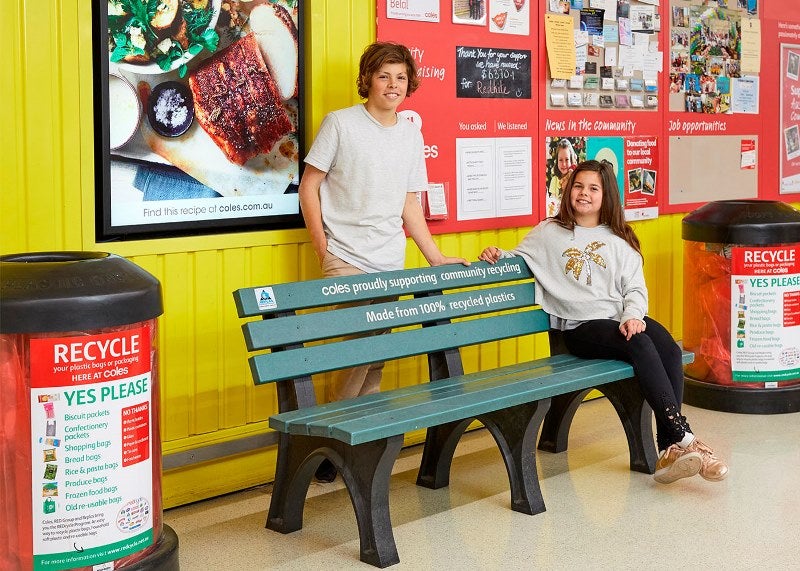
Australian supermarket chain Coles Group has announced that its customers recycled 226 million soft plastics pieces this year, which indicates a 32% increase compared to the previous year.
The recycled plastics include biscuit packets, lolly bags, frozen food bags and bread, rice and pasta bags. The company has reported this achievement in its sustainability report.
The milestone was reached through a REDcycle programme. As part of the initiative, customers can place plastic bags and soft plastic packaging in REDcycle bins located at all Coles supermarkets. The bins were rolled out and allocated in 2018.
According to the company, customers in Hornsby, New South Wales; Yarraville, Victoria; Kenmore, Queensland; St Agnes, South Australia; Kingston, Tasmania; Jamison, ACT and Inglewood, Western Australia diverted the most plastic from landfills.
Coles chief property and export officer Thinus Keeve said: “The increase in use of REDcycle bins shows just how significant the issue of reducing waste has become for customers.
“We know that recycling is important to our customers and we are seeing many people changing their habits to reduce waste that ends up in landfill.

US Tariffs are shifting - will you react or anticipate?
Don’t let policy changes catch you off guard. Stay proactive with real-time data and expert analysis.
By GlobalData“Since we partnered with REDcycle in 2011, our customers have recycled enough pieces of plastic to go around the world five times, which is just fantastic.
“We want to become Australia’s most sustainable retailer, so we are looking at ways to divert even more waste from landfill and reduce packaging.”
The collected plastic items are recycled for various uses such as furniture, playground equipment and materials for walkways in parks, roads and bollards.
Australian manufacturers, including Replas and Plastic Forests, utilised the soft plastic items as a raw material to create playground benches, garden edging, wheel stops, walkways in parks, bollards and the customer seats used in the company’s supermarkets.
In June, the Australian supermarket chain announced plans to invest in technology and automation to save A$1bn ($685m) over the next four years.



